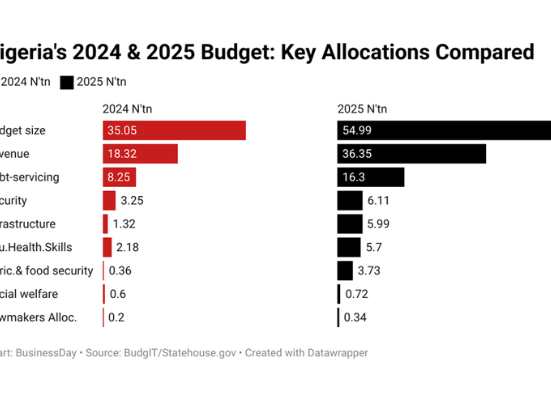Vice-President Kashim Shettima has called on lawmakers to enact policies that will enhance nutrition and food security across Nigeria, emphasizing the need for government-led solutions to address malnutrition.
Shettima made the call on Wednesday while hosting members of the National Legislative Network on Nutrition and Food Security at the Presidential Villa, Abuja. The delegation was led by Chike Okafor, Chairman of the House of Representatives Committee on Nutrition and Food Security.
Government-Led Nutrition Reforms
The Vice-President highlighted the importance of legislative support for the Nutrition 774 Initiative, a national program spearheaded by President Bola Tinubu’s administration. The initiative aims to improve coordination, financing, and accountability in addressing malnutrition.
“For too long, our responses to malnutrition have been fragmented, donor-driven, and inconsistent. Nutrition 774 changes that,” Shettima stated. “It is government-led, government-funded, and government-implemented because we understand that food security cannot be outsourced.”
He stressed that lawmakers play a critical role in ensuring the success of the initiative, particularly through reviewing key laws that affect nutrition and food security.
“You are essential in reviewing key laws—from maternity leave policies that support improved infant nutrition to the removal of multiple taxation on food produce to curb inflation,” Shettima said.
“But beyond policies, we need execution. We have had enough reports, enough recommendations, and enough committees. What Nigeria needs now is action.”
Aligning Nutrition with National and Global Agendas
Shettima emphasized that the government’s approach to nutrition aligns with global and regional development strategies, including the UN Agenda 2030 and the African Union Agenda 2063. He noted that nutrition policies are also integrated into Nigeria’s broader national plans, such as the Economic Recovery and Growth Plan, the National Policy on Food and Nutrition, and the National Policy on Food Safety.
“We are not working in silos. Nutrition 774 is not a standalone program; it is part of a larger national strategy under President Tinubu, aimed at building a self-sufficient Nigeria that nourishes its people,” Shettima said.
He stressed that the initiative’s success will be measured by tangible results, such as reducing child stunting, improving school performance due to better nutrition, and ensuring mothers have access to adequate nutrition.
“The success of this initiative will not be measured by the eloquence of our discussions but by the real impact on people’s lives,” he added.
Linking Malnutrition to Insecurity
The Vice-President also highlighted the direct link between food insecurity and national instability, noting that regions suffering from food shortages are often the most affected by violence and unrest.
“When young people are denied a fair shot at life because their bodies and minds were weakened by poor nutrition in childhood, the consequences ripple through generations,” he warned.
“This is why investing in nutrition is not just a moral obligation; it is an investment in national security, economic growth, and long-term stability.”
Legislative Efforts to Strengthen Nutrition Policies
Chairman of the House Committee on Nutrition and Food Security, Chike Okafor, stated that the committee is actively reviewing and amending existing nutrition laws to reflect global best practices.
Key legislative reforms under consideration include:
Extending maternity leave from three to six months
Regulating the sale of bulk vegetable oil to prevent adulteration
Addressing multiple taxation on food products transported across regions
“We engaged the Conference of Speakers of the 36 State Houses of Assembly, and today, we are happy to report that all state assemblies now have dedicated committees on nutrition and food security,” Okafor said.
He commended Shettima’s leadership in driving the Nutrition 774 Initiative, describing it as a bottom-up approach that will address key gaps in Nigeria’s nutrition interventions.
Unified Legislative Approach
Michael Ige, Majority Leader of the Ekiti State House of Assembly and Chairman of the National Legislative Network on Nutrition and Food Security (NLNN), emphasized that the initiative has strengthened collaboration among lawmakers across the country.
“The NLNN has built our capacity on nutrition-related issues and highlighted the economic implications of poor nutrition,” Ige said.
He added that the establishment of nutrition committees in state assemblies provides a structured approach for advancing nutrition-focused policies at the state level.
With the government pushing for legislative action and execution, Shettima urged lawmakers to ensure that nutrition policies are not just debated but effectively implemented to secure a healthier and more food-secure Nigeria.







